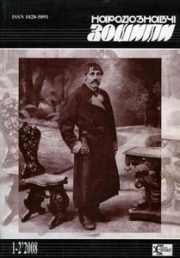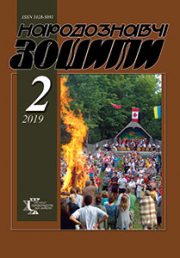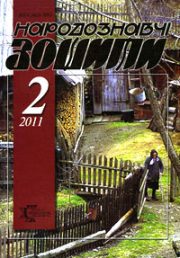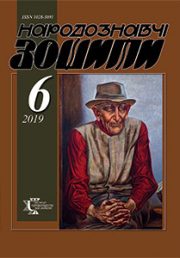The Ethnology Notebooks. 2022. № 3 (165), 594—600
UDK 655.53:003.24:376-056.262(44+450)
DOI https://doi.org/10.15407/nz2022.03.594
WORLD EXPERIENCE OF CREATING TACTILE BOOKS
GULEVYCH Svitlana
- ORCID ID: https://orcid.org/0000-0002-6719-6453
- Master of Arts, graduate student,
- Lviv National Academy of Arts,
- The Department of Theory and History of Art,
- Kubiyovycha St., 38, 79011, Lviv, Ukraine,
- Contacts: e-mail: svetlanagulevich2020@gmail.com
Abstract. The article is focusing on investigation of creation and development of the tactile books. Volunteer support of organizations for learning about the environment for children with visual impairments, blind children, and children with various forms of inclusion is highlighted. The uniqueness of the work of famous representatives of typhlopedagogy, including Philippe Claude, Francesca Picardi, Piero Vecchiarelli, is revealed. The peculiarity of their contribution to the development of publishing associations in France and Italy is revealed. Their experience of creating tactile books for children with visual impairments and inclusion as a means of artistic orientation is analyzed.
The interpretation of the term «tactile book» in scientific works is meaningful. The knowledge of technologies of making tactile products of illustrations for children with visual impairments is systematized. The significance of these books in the artistic, social and aesthetic spheres is analyzed. The relationship between the recommendations for the creation of tactile manuals and future practical products is highlighted. The peculiarities of the psychological perception of the art of the tactile book and its role in the formation of personality are revealed.
The distinctness of understanding illustrations from the point of view of design art in the practice of Daniel Valente is clarified. The article «Tactile books for the blind: design for all» is analyzed, and the author’s principles of book and illustration design are presented.
The basic rules for creating tactile books in the understanding of Philippe Claude are considered, namely: the combination of Braille and ordinary font; use of technology of cutting, gluing, sewing of various textured material; adding sound elements; use of color contrasts; special mounting.
Means of popularization of tactile books in the world are allocated, namely competitions: «Typhlo & Tactus (T&T)» Italy, «Tocca a Te!» Japan, exhibition «Tactile books with pictures from Italy» Japan.
Keywords: tactile books, world experience, art for the blind, Braille, practice of Philippe Claude.
Received 27.04.2022
REFERENCES
- Valente, D. (2016). Tactile books for blind children: a design for all approach. European Academy of Design Conference Proceedings. Retrieved from: https://www.researchgate.net/publication/306061056_Tactile_books_for_blind_children_a_design_for_all_approach.
- Osipova, L. (2016). The book as a means of education and training of blind and visually impaired preschoolers. Chelyabinsk [in Russian].
- Claudet, P. (2016). Tactile book concept. Ludosens. Retrieved from: https://ludosens.com/2016/11/30/philippe-claudet-livres-tactiles/ [in French].
- Blain, S. (2021). France inter Lionel Thompson’s «SpiritofInitiative». Inthepress. Retrieved from: https://ldqr.org/association/dans-la-presse/ [in French].
- Marchand, L. (2019). International Competition of Tactile illustrated Books. Retrieved from: http://tactus.org/?lang=en.
- Vecchiarelli, P. (2021). National Competition TOCCA A TE! National Federation of Institutions for Ciechi Onlus. Retrieved from: https://libritattili.prociechi.it/concorsi/concorso-nazionale-tocca-a-te/ [in Italian].
- Piccardi, F. (2001). Free text illustrations in the process of educating a child with a living deficit. Retrieved from: http://libritattili.prociechi.it/approfondimenti/francesca-piccardi [in Italian].
- Montessory, M. (2016). My method: initialtraining. Moscow: Tsentrpoligraf. Retrieved from: http://mediapasport.com.ua/uploads/books/15.pdf [in Russian].
- (2020). The Bologna Children’s Book Fairwasheld online for the first time. Ukrainian Book Institute. Retrieved from: https://book-institute.org.ua/uk/news/kategoriya-2/bolonskiy-yarmarok-dityacho-knigi-vpershe-vidbuvsya-v-onlayn-rezhimi-pidsumki [in Ukrainian].







